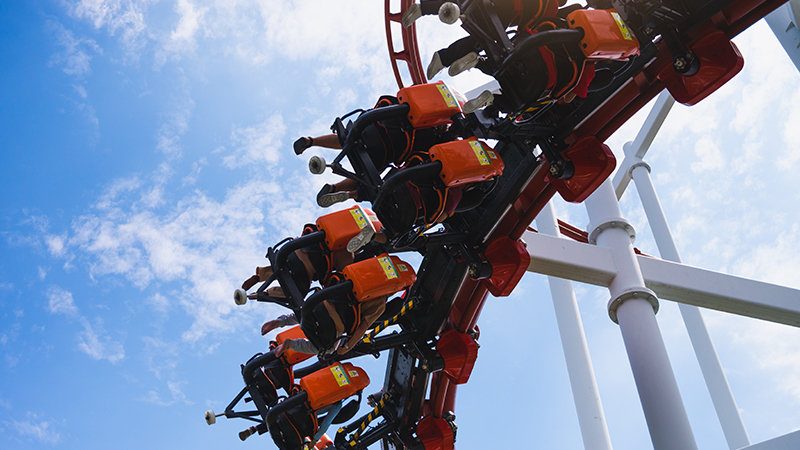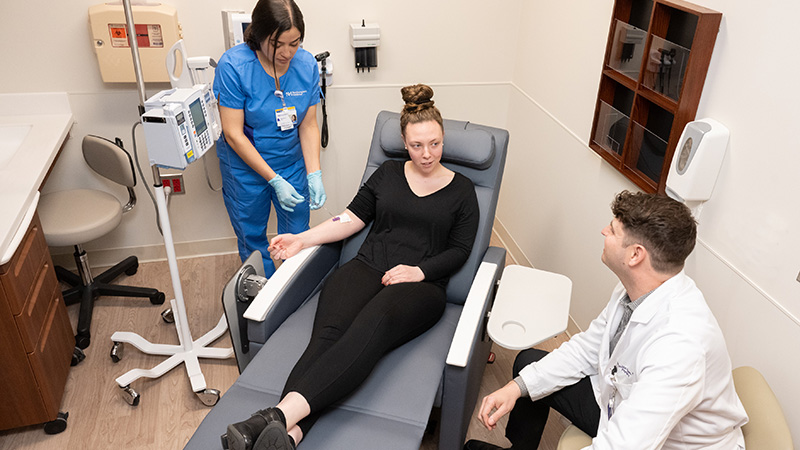When Drinking Becomes Binge Drinking
The Effects on Your Health and Well-Being
Updated September 2024
Do you enjoy a glass of wine after a long day at work or when socializing with a friend? Drinking alcohol is a very normal and accepted behavior in American culture. However, it's important to remember that alcohol is a drug, and any amount of drinking comes with risks.
According to the World Health Organization (WHO), any amount of alcohol consumption affects your health. This is a particular concern for the 44.5% of people who report drinking alcohol excessively, which can also be called binge drinking.
Binge drinking puts people at greater risk for an alcohol use disorder.— Elise Wessol, DO
What Is Binge Drinking?
Binge drinking is the pattern of drinking enough alcohol to bring a person's blood alcohol concentration to 0.08% or above. For men* ages 21 and older, this usually happens after they drink five or more alcoholic beverages in a two-hour period. For women ages 21 and older, it usually happens after they drink four or more alcoholic beverages in a two-hour period.
"Although not everyone who binge drinks has an addiction to alcohol, binge drinking is a risky behavior that can have negative consequences," says Elise Wessol, DO, a physician who specializes in addiction medicine at Northwestern Medicine. Binge drinking is still a serious public health problem that can severely damage your health and well-being.
"Binge drinking occurs when people drink excessive amounts of alcohol in a short period of time, often in social settings," says Dr. Wessol.
The Negative Effects
Research suggests there is a correlation among many long-term and short-term health issues and binge drinking. This includes:
- Blackouts (the temporary loss of consciousness or short-term memory), overdose and alcohol poisoning
- Unsafe sexual behavior, leading to unintended pregnancy and sexually transmitted infections
- Deadly incidents and injuries, such as falls, burns and car crashes
- Violence, including domestic violence and suicide
- Reduced memory and ability to think and process
- Long-term heart-related diseases, liver disease and high blood pressure
- Certain cancers, such as breast, head and neck, liver, esophageal and colorectal cancers
"Binge drinking also puts people at a greater risk for an alcohol use disorder. The earlier someone begins drinking and drinking excessively, the higher their risk of developing an alcohol use disorder," says Dr. Wessol.
Drink in Moderation
If you choose to drink, the U.S. Dietary Guidelines for Americans suggest limiting the amount to one drink per day for women and two drinks per day for men.
“If you are planning on drinking, always use the buddy system and have a sober friend to look out for you to decrease the risk of spiked or drugged drinks, sexual assault, and drinking and driving,” says Dr. Wessol.
Getting Help
According to Dr. Wessol, several evidence-based treatment options are available to address an alcohol use disorder, such as cognitive-behavioral therapy, family counseling, 12-step facilitation therapy and non-addicting medications. If you are concerned about your drinking habits or those of a loved one, it is important to seek help. Consider using these resources:
- Your physician
- Alcohol treatment programs
- Mental health professionals
Learn more about addiction.
* Scientists do not always collect information from participants about gender identity. To avoid misrepresenting the results of this research, we use the same terminology as the study authors.





